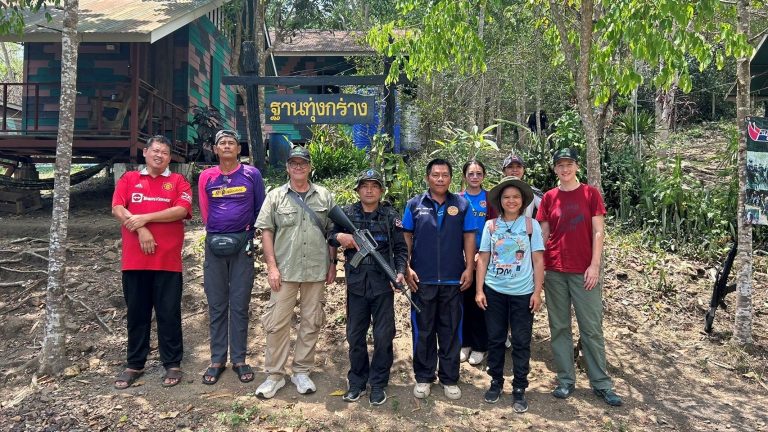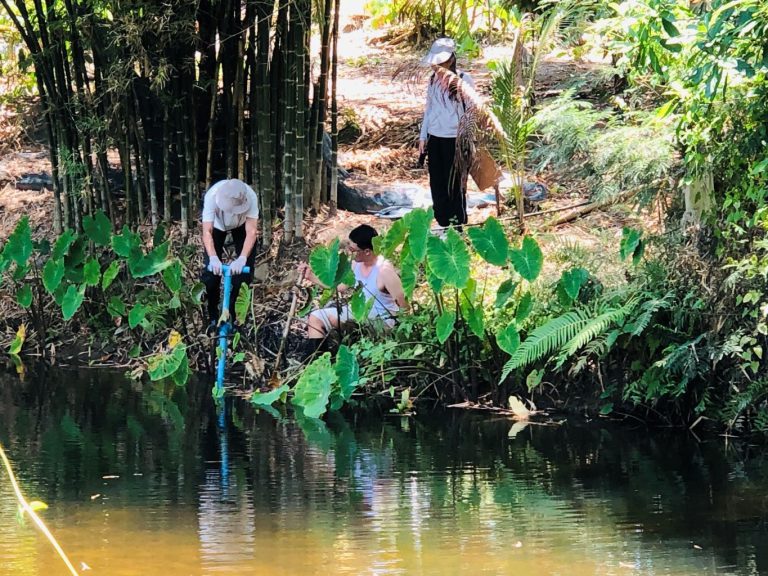PANDASIA conducted field sample collections in Chanthaburi Province, Thailand
Following defined research methodologies, PANDASIA fielded Work Package 3 teams of experts to collect samples and gain useful insights on the virus’s local spread, the possibility of zoonotic transmission, and spillover.
During 1-8 April 2024, PANDASIA’s Work Package 3 carried out sampling activities between and among teams and with local organizations that have shared PANDASIA’s purpose. The invertebrate team led by Dr. Hans Overgaard, the PANDASIA’s principal investigator, collected samples of mosquitoes, flies and leeches in Chanthaburi province, Thailand. A highly committed team of entomologists from the Office of Vector Borne Disease Control, Chanthaburi province.


The invertebrate sample collections aimed to determine the abundance of mosquitoes, flies, and leeches at interfaces; detect wild and domestic animal host DNA in invertebrate blood meals (iDNA); and identify novel viruses with spillover potential in these blood meals.
Meanwhile, the vertebrate team led by Dr. Boripat Siriaroonrat, Mahidol University collected rodents, bats, and domestic animals.
In the same period, Prof. Dr. Chamsai Pientong from the Department of Microbiology, Faculty of Medicine, Khon Kaen University, led a team of virologists to collect environmental samples consisting of air, water, and sediment in five target villages, forests, orchards, temples, and garbage dumps in the Pong Nam Ron and Soi Dao Districts. They collected environmental samples for laboratory analysis to assess the similarities of viruses found in the environment and in animals, both invertebrates and vertebrates, to investigate the possibility of zoonotic diseases.
All collection activities will contribute to a better understanding of human-animal-environment interfaces for modelling risk for zoonotic spillover and disease emergence in high-risk settings in Thailand. The next set of sample collections will be carried out by all teams in Chiang Rai province during 20-30 April 2024.








